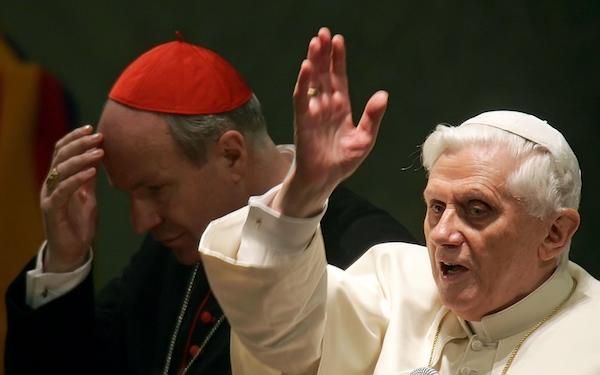Cardinal Joseph Ratzinger, the then-Prefect of the Doctrine of the Faith, was the decisive driving force behind the World Catechism of the Catholic Church, the Archbishop of Vienna, Cardinal Christoph Schönborn, has said.
He explained the role of the late Pope Emeritus in a guest contribution for the German edition of the L’Osservatore Romano and in a lengthy address on the occasion of the 30th anniversary of the Second Vatican Council at the Cathedral Academy in Vienna on 12 January.
The World Catechism was published at the end of 1992 after a special commission headed by Ratzinger had worked on it for several years. Schönborn acted as secretary of the commission.
Already on the 20th anniversary of the Council, a number of cardinals had expressed the wish for a compendium of Church doctrine and of the Council, Schönborn recalled, but he added that “in those days the word ‘catechism’ was a word of abuse”.
He himself had not been “totally surprised” by the cardinals’ wish as Ratzinger had already previously outlined and recommended such a work in lectures in Lyon and Paris, Schönborn said.
“In my eyes it is most important to highlight the part Cardinal Ratzinger took in this project. His output, his spirit and his inspiration were decisive,” the cardinal said.
Ratzinger had issued an important instruction to the commission at the time, Schönborn recalled, namely that the commission should not discuss or advance theological debates but should “simply and clearly” present the doctrine of the faith.
“The Catechism was not to take up position between different theological schools but was to offer what comes before all theology – namely the deposit of the faith (depositum fidei) – that is the complete didactic content of Christian revelation.”
Some of the most heated discussions had concerned the death penalty, Schönborn recalled. There had already been intensive discussions concerning a “just war” and the death penalty when it had come to the fourth commandment.
The first edition of the Catechism in 1992 had however still concluded that the death penalty for serious crimes was admissible as a deterrent measure. The second edition had already taken into consideration St John Paul II’s wish to ban the death penalty.
And under Pope Francis in 2018 the Church had declared that the death penalty was inadmissible “as it is against the inviolability and dignity of the human person”.
This was a “good and beautiful example” that doctrinal development was possible – not as far as the deposit of faith was concerned – but in the field of practical moral application, Schönborn said.



 Loading ...
Loading ...